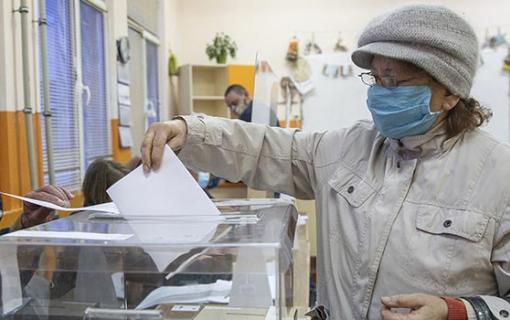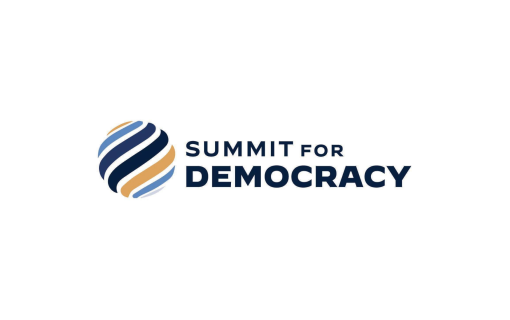
Online Launch Meeting: Europe and Eurasia Regional Election Management Body Working Group on Social Media, Disinformation and Electoral Integrity
The International Foundation for Electoral Systems (IFES) looks forward to welcoming invited guests to the virtual launch of the Europe and Eurasia Regional Election Management Body Working Group on Social Media, Disinformation and Electoral Integrity. The main goal of the event is to establish the working group that will focus on tackling the challenges presented by social media and disinformation to the electoral process.
Please note that this is a private, invitation-only event. There will be a series of sessions over the course of the week, and while we encourage all participants to join the introductory and concluding sessions, feel free to RSVP for sessions that are relevant to your interests and your role within your institution. Details for each session are available below. Should you have any questions, please contact Nikoleta Diossy at ndiossy@ifes.org.
Introductory Plenary Session
May 27, 2020, 14:00-15:00 CET
The “Introductory Plenary Session” will include a welcome and an introduction to the working group body launch, with an overview of the challenges, tools and good practices presented by social media and disinformation as they relate to electoral integrity. Participants will receive an overview of the two-day virtual sessions and have the opportunity to exchange initial thoughts on the vision for the network and key challenges faced in this space.
No RSVP is required for this session.
Practicing Oversight and Ensuring Transparency in Online Political Advertising
May 27, 2020, 15:15-16:30 CET
This session will focus on how institutions can employ good practices and ensure transparency as it relates to political advertising online. A wide range of political actors are increasingly using online platforms like Facebook to campaign and purchase advertising. In many cases in Europe and Eurasia, current regulatory frameworks do not include these forms of advertisements and standard reporting requirements do not guarantee transparency. Speakers during this session will cover these barriers to accountability and integrity and how relevant institutions can employ good practices, as well as tools available for oversight.
Voter Education, Combating Disinformation and Social Media
May 27, 2020, 16:45-18:00 CET
This session will explore how social media and strategic communication can be employed by election management bodies (EMBs) to advance voter education efforts and dispel electoral disinformation. In addition to traditional channels for informing voters, social media can provide EMBs with a potential tool for increasing institutional transparency and building trust. Malign actors are innovating, and social media is continuously evolving, all with critical implications for how mis- and disinformation are created and amplified throughout information ecosystems. For countries with high rates of social media penetration, a strong presence on social media can be highly rewarding in providing a counter narrative on the same channels where digital disinformation is originating and spreading.
In the midst of a pandemic with multiple elections in Europe and Eurasia postponed or rescheduled due to COVID-19, voter education will continue to be critical in combating disinformation and increasing the public’s trust in EMBs as credible institutions.
Discussion: Value and Risks Associated with Electoral Integrity Tools or Services Developed by Social Media and Technology Companies
May 28, 2020, 14:00-15:30 CET
As EMBs constitute one of the fundamental actors in securing and protecting the integrity of elections, they stand in an increasingly difficult position amid the profound challenges and risks that social media have introduced to elections. This evolving landscape requires a new set of skills, new legal and regulatory frameworks, as well as liaising with a new set of actors – social media and technology companies. At the same time, these companies – such as Facebook, Microsoft, Google and Twitter – play a role in ensuring that elections are technologically secure and take place in a credible information environment. Direct exchange between election authorities and technology and social media companies has the potential to increase EMBs’ ability to knowledgably engage with technology companies and develop strategies for effectively managing their collaboration.
This session will provide an opportunity for participants to learn about their peer organizations’ experiences working with social media and technology companies. It will also provide a forum for companies like Facebook to share common forms of support and coordination that they are able to provide to election authorities as well as reflections on what types of coordination have been the most effective in the past. During the second half of the session, EMB participants will share experiences and lessons learned from their formal or informal engagement with social media and technology companies.
Concluding Plenary Session
May 28, 2020, 15:45-16:45 CET
The "Concluding Plenary Session" will wrap up the key highlights from the two-day sessions and lay out the vision and next steps that working group members can take in advance of future meetings anticipated to take place in person at IFES' Regional Europe Office in Prague.
No RSVP is required for this session.







